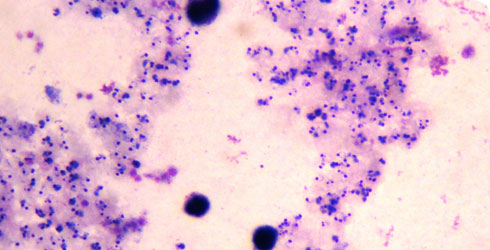Plasmodium falciparum
Common symptoms of malaria include:
- fever
- shivering
- joint pain
- vomiting
- anaemia
- convulsions
Severe malaria caused by P. falciparum can progress extremely quickly and lead to:
- severe brain damage
- cognitive impairments - especially in children
- enlarged liver and/or spleen
- severe headache
- cerebral ischemia (lack of adequate blood flow)
- low blood sugar
- renal failure
- coma
- death - young children and pregnant women are especially vulnerable
Museum scientists are running a project in Uganda, aiming to:
- better understand disease distribution in rural villages better
- promote the distribution of bed-nets and treatment availability
- understand the relationship between malaria and other tropical diseases
Species detail
-

Distribution
Malaria affects the lives of millions of people. Find out where.
-

Biology
P. falciparum travels from mosquitoes to humans and back again when the mosquito takes a blood meal. Find out more about the parasite’s life in its hosts.
-

Disease
Find out how malaria can be diagnosed and treated.
Images
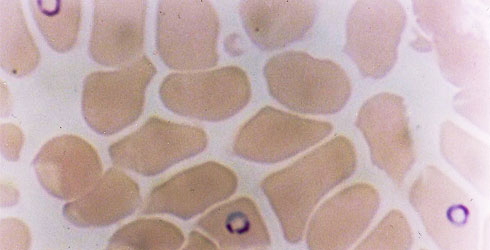
Ring stage of Plasmodium falciparum in human red blood cells.
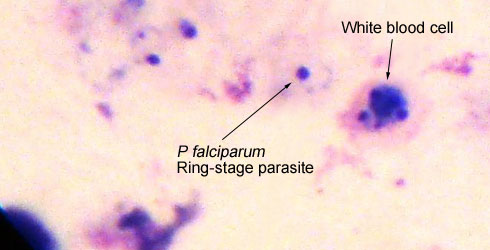
Plasmodium falciparum, ring-stage parasite and a white blood cell.
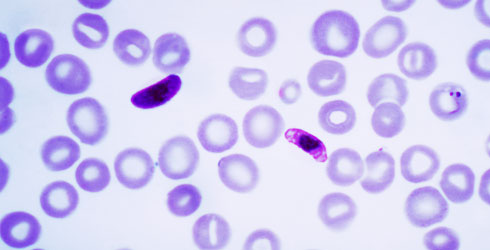
A blood smear containing a macro- and microgametocyte of the Plasmodium falciparum parasite.
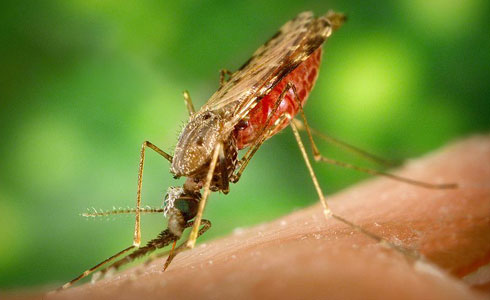
Female Anopheles albimanus mosquito.
About the author
Jose Carlos de Sousa Figueiredo
Former Postgraduate Research Assistant
Department of Zoology
A word from the author
"Plasmodium falciparum causes the deadliest of all forms of malaria - cerebral malaria. Although it has been vastly studied, treatment is far from absolute, and a vaccine is nothing but a dream. This fairly simple life-form has a very complex natural history and this has fascinated scientists worldwide."
